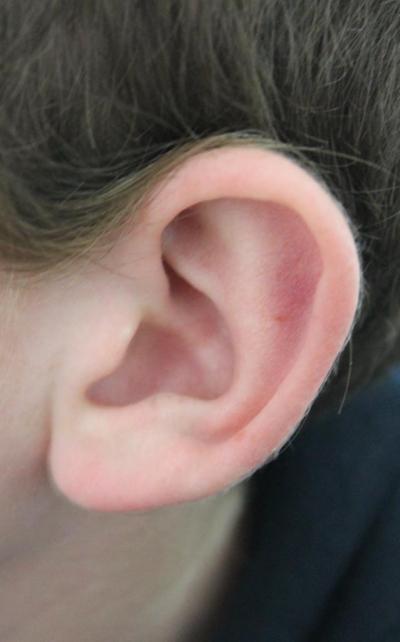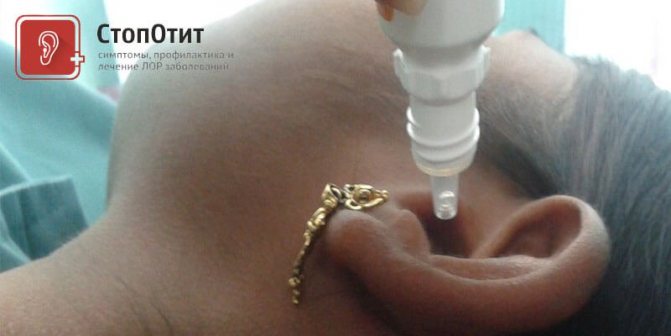From this article you will learn how sulfur affects the body, what benefits sulfur brings, and what a lack of sulfur in the body leads to. You will also get acquainted with such a food additive as MSM (methylsulfonylmethane) and learn how you can use it for allergic diseases, diseases of the musculoskeletal system and diabetes.
History of sulfur. How was sulfur discovered?
Sulfur has been known to man since ancient times. According to the scriptures, ancient priests used this component as part of sacred incense during religious rites. It was also considered a magical and supernatural component that was created by spirits. Sulfur began to be used in flammable mixtures for military purposes in past centuries. There is a version that sulfur was part of the Greek fire, which was so feared by opponents. The Chinese discovered sulfur at the beginning of the 8th century. They used it to produce pyrotechnic mixtures. It was an analogue of gunpowder.
Sulfur is a flammable substance and easily combines with metals to form sulfides. For this reason, the trace element has long been mistakenly considered part of metal ores. The method of oxidative roasting of sulfide copper ore was described in ancient Egypt by Presfiter Teoifilo. During Arab alchemy, the mercury-sulfur theory of metal composition was derived. It was that sulfur was an essential component of all metals. From this theory, the principle of flammability was later derived, which is considered the basis of the phlogiston theory. The first to establish the elemental nature of sulfur was Lavoisier. He conducted experiments on the combustion of trace elements.
Application
Sulfur is used in both the chemical and pharmaceutical industries, including the production of sulfuric acid, dyes, insecticides and artificial fertilizers. Only about 10% of total sulfur production is processed in elemental, that is, pure form. The main use of elemental sulfur is in the production of vulcanized rubber and dyes.
Pure sulfur is necessary for the production of matches and fireworks. It is also a component of crop protection products, used for barrel desulfurization (disinfection with sulfur dioxide by burning pure sulfur) and as a bleaching agent for natural fibers such as silk and wool.
The pharmaceutical use of sulfur was known in ancient times as a laxative. Sulfur irritates the intestinal mucosa, and hydrogen sulfide produced by bacteria stimulates peristalsis. Sulfur compounds have been used to treat skin conditions such as acne, eczema, scabies, mycoses and the like. Sulfur is one of the most popular medicines in classical homeopathy.
In heavy industry, sulfur is an important alloying element for steel. Also used as nitrate sulfur in fireworks and other explosives. In agriculture, sulfur kills pests such as spider mites and powdery mildew.
Food sources of sulfur. What products can you get sulfur from?
To replenish sulfur reserves in the body, you need to eat a varied diet. You can get a macronutrient from food, both plant and animal origin. Sulfur is found in meat products and fish. Turkey, beef, rabbit and pork are rich in it. Chicken also contains this component. There is slightly less sulfur in turkey liver than in the meat itself.
Among seafood, you should pay attention to flounder, sardines, perch and catfish. Sulfur is contained in quail and chicken eggs. It is rich in cheese, cereals and legumes. Vegetables include cabbage, Brussels sprouts, onions, garlic, turnips and lettuce as sulfur-rich foods. Spinach, asparagus, radishes and horseradish also contain sulfur. Nuts are rich in it. Sulfur is found in chili peppers, nettles and mustard. A small percentage of it can be obtained from bread. Vegetarians are at risk of sulfur deficiency because food of animal origin contains more of the component.
How much sulfur does a person need? Daily norm of sulfur
Scientists have different opinions when discussing the norm of sulfur for humans. Most of them believe that a regular diet consisting of products of plant and animal origin will be sufficient. Others argue that an adult should receive from 4 to 6 grams of sulfur per day. To replenish this amount of the component, you should drink mineral water with sulfates.
How much is needed per day
Clinical data on the required daily dosage of this mineral is quite contradictory.
Some laboratories claim that the human body needs 1.2 g of sulfur per day to function normally. Other scientists claim that the required daily dose is several times larger, amounting to 4-5 g.
This difference is explained by the lack of sufficient clinical data on the effect of the mineral on the human body. Doctors agree that a healthy person who does not suffer from pathologies in the functioning of organs and systems needs 3-4 g of sulfur per day.
With a varied diet rich in fruits, vegetables, herbs, meat and dairy products, additional intake of this element is not required.
There are categories of people who need to carefully monitor the presence of this mineral in the products they consume.
These include:
- children and adolescents;
- people suffering from pathologies of the musculoskeletal system;
- athletes;
- people whose professional activities involve increased physical activity.
Beneficial properties of sulfur on the human body
Sulfur is an essential component for the human body. It is part of the amino acids: methionine and cystine, as well as the vitamin thiamine and the enzyme insulin. The main function of sulfur is to fight harmful bacteria that can harm the blood plasma. Blood clotting depends on the amount of sulfur in the body.
Sulfur also maintains the normal amount of bile produced. This function affects the functioning of the digestive system. Sulfur can slow down the aging process of the body, as it protects it from the effects of radiation and other negative environmental factors. For this reason, this component is often called the queen of macronutrients. However, we should not forget that all beneficial components have a positive effect on the body only in combination.
Sulfur helps collagen synthesis to occur. This substance is responsible for structuring the skin, improving the appearance of the epidermis. The health of skin, nails and hair depends on the amount of sulfur in the body. Cosmetologists recommend collagen injections to maintain beauty. However, all you need to do is consume enough sulfur-containing foods to maintain the appearance of your skin and hair.
For many, it will be a discovery that the durability of a tan depends on the amount of sulfur in the body. It enters into the skin pigment called melanin, improving its quality. Sulfur is part of hemoglobin, on which the transport of oxygen from the respiratory organs to tissue cells directly depends. This component is also responsible for the movement of carbon dioxide from cells to the respiratory organs. Thus, sulfur helps oxygenate the blood, which supports the functioning of the human body.
Types of earwax
Wax is essential for the ear. This is not just a secretion, but a secret with many beneficial properties.
- It cleanses the ear canal.
- Prevents the penetration of pathogenic infections inside.
- Protects from dust and dirt.
- Protects from drying out.
- Prevents water from entering the canal.
There are several types of sulfur:
- black wax in the ears;
- red;
- dark brown;
- dry;
- white;
- liquid.
Let's look at each type in more detail.

- Sulfur plug
Benefits of sulfur for diabetes
Type 1 diabetes is a disease caused by metabolic disorders due to a lack of insulin in the body. Type 2 diabetes is characterized by a loss of the ability of peripheral tissues to metabolize insulin and glucose. Because of this, cells become impenetrable and resistant to insulin or glucose when enough insulin is produced.
Supplementing with sulfur may help with these problems. The trace element can affect the production of insulin and other vital components: thiamine, biotin. Sulfur also helps restore normal blood sugar levels, because. increases the permeability of cell membranes.
Treatment
If your ears regularly release a lot of wax, there is no need to panic.
When this condition causes discomfort, it is better not to try to eliminate it yourself, but to contact a professional. The most common problem that occurs due to the abundance of sulfur in the ear canal is the formation of cerumen plugs. A specialist can solve this problem quickly without the need for hospitalization. First, the doctor instills a special solution (sometimes ordinary hydrogen peroxide) into the ear. The liquid softens the plug without damaging the ear canal or eardrum. After 10-15 minutes, using a special syringe with warm water, the doctor will slowly remove the wax plug from the ear under pressure. If necessary, the procedure can be repeated again. Removing plugs is absolutely painless.

Important! If a specialist offers to remove wax plugs, do not refuse and do not be afraid. The process itself lasts less than half an hour, and the person feels only slight discomfort due to ear congestion and a slight tingling feeling. But finding traffic jams can lead to serious complications: hearing impairment and inflammatory processes.
Additional benefits of consuming sulfur for hair and skin
Problems with hair and skin most often arise due to a lack of microelements in the blood. The amount of vitamins affects hair color, structure and growth. If you eat a good diet of foods rich in microelements, including sulfur, there should be no problems with your hair. Sulfur is one of the components necessary for the production of collagen and keratin. It also helps create proteins necessary for healthy skin. Sulfur increases the elasticity of the skin, eliminates dryness and restores complexion.
To maintain youthful skin, you need to take sulfur in the form of dietary supplements. Therapeutic cosmetology widely uses sulfur. It is included in many anti-acne and rosacea products. Doctors advise adding more foods containing sulfur to your food to speed up the treatment of psoriasis, dermatitis and eczema. This component effectively fights against dandruff, fungal infections and diaper rash.
Sulfur is an important component in products that heal burns and scars. If a person does not have enough sulfur in his body, rough scar tissue forms at the site of the injury. Sulfur helps slow down the aging process, as it protects the body from the harmful effects of the environment and radiation.
Methylsulfonylmethane MSM
One of these dietary supplements is MSM NSP . MSM (methylsulfonylmethane) is a water-soluble organic product containing sulfur. It has neither odor nor taste and is considered one of the least toxic biological substances. Regular table salt is much more toxic than MSM. The organic sulfur in MSM NSP is very well absorbed. When taken orally, part of the dose of MSM is delivered to the cells of the mucous membrane, while the rest of the substance is quickly absorbed into the blood. Within 24 hours, the sulfur released from MSM is completely absorbed by the body’s tissues, its excess is easily removed with urine and bile.
Sulfur deficiency in the body. What are the consequences of sulfur deficiency for humans?
Disruption of sulfur metabolic processes in the body can harm human health. That’s why doctors recommend regular blood tests. Sulfur deficiency in the body leads to a decline in the body's immune functions. This is fraught with the fact that a person becomes susceptible to any viral and other infections, colds, and fungal diseases. If sulfur reserves are kept low, chronic fatigue and lethargy appear. Sulfur helps remove toxins from the body, and when a component deficiency occurs, the blood vessels become clogged. The risk of waste accumulation increases.
Sulfur is responsible for the quality of the skin, and therefore without a sufficient amount of it, frequent rashes and redness are possible. The skin is the first organ to signal a lack of any component. If a rash appears, analyze your diet. Another sign of sulfur deficiency is loose skin, lifeless hair and thin nails.
With a small amount of sulfur, hair begins to fall out and nails deteriorate. Also, a lack of a component is indicated by poor blood clotting and the development of problems with blood vessels and the stomach. To maintain the level of sulfur in the body, it is necessary to consume products of animal origin, they contain much more of the component. The best sources of sulfur: meat, seafood, eggs, cheeses.
However, if you prefer plant-based foods, then choose legumes, cabbage and greens. Experts believe that vegetable juices will bring the greatest benefit. Fresh vegetables are richer in vitamins than those that have been thermally processed. Freshly squeezed vegetable juice in the morning half an hour before meals is an ideal solution not only for replenishing microelements, but also for improving the health of the entire body.
One glass of freshly squeezed vegetable juice in the morning or 30 minutes before meals will start your gastrointestinal tract, improve food absorption, and improve the tone of the whole body as a whole. It will also increase the concentration of all minerals that benefit the immune system.
Doctors believe that a nutritious diet should be enough to increase sulfur levels in the body, and a person does not require special nutritional supplements or medications. However, the nutrition of modern man is far from ideal. Vegetables and fruits are treated with chemicals, and more and more people are choosing fast food for a snack, and therefore the level of microelements and vitamins is rapidly falling in the body. Therefore, if symptoms of sulfur deficiency appear, consult a doctor who will prescribe you special supplements or prescribe the correct diet.
Vitamin-mineral complexes containing sulfur
If signs of sulfur deficiency appear, as well as problems with the skin or hair, it is recommended to take special vitamin-mineral complexes containing a sufficient amount of this mineral.
For prevention or treatment, the following multivitamin preparations can be recommended:
- "Alerana";
- "Merz" (dragée);
- "Revalid";
- "Perfectil";
- "Pantovigar";
- "Laval".
Video: “Where does sulfur come from?”
Excess sulfur. What happens when there is an excess of sulfur in the body?
It is extremely rare to encounter an excess of sulfur. It is found only in regions where the percentage of this component in the soil is too high. Sulfur is considered non-toxic when found in food. However, when it comes to a chemical compound, you should be careful, as it causes poisoning and even death. These compounds include hydrogen sulfide and sulfur dioxide.
When hydrogen sulfide vapor enters the respiratory tract, a person immediately begins to experience convulsions, loses consciousness, and possibly stops breathing. After contact with this substance, most of the victims die; those who manage to survive remain disabled. Hydrogen sulfide entering the body leads to paralysis, mental disorders, and disruption of the lungs and gastrointestinal tract. Severe headaches occur.
According to research, sulfur concentrations in the environment have increased recently. More and more sulfites are being added to food products to extend their shelf life. The largest percentage of these additives is found in smoked products, ready-made salads, beer and vinegar. There is also a risk of getting a large dose of sulfur from vegetables that are fertilized with chemicals. Sulfides, accumulating in the body, cause the development of bronchial asthma. Excess sulfur in the body manifests itself almost immediately. Symptoms of too much sulfur:
- itching
- skin inflammation
- irritation throughout the body
- boil formation
- development of conjunctivitis
- the occurrence of a corneal defect
- frequent tearfulness
- Pain in the eyes
- eyeball irritation
- sensitivity to light
- development of anemia
- frequent weakness
- appearance of dizziness
- headache
- causeless nausea
- upper respiratory tract diseases develop;
- hearing loss
- disruption of the gastrointestinal tract
- rapid weight loss
- a sharp decline in intelligence.
In order for sulfur to be better absorbed in the body, it is necessary to maintain normal amounts of fluoride and iron.
How to use sulfur
Sulfur-containing drugs are taken simultaneously with food.
You should only buy purified sulfur from the pharmacy.
Feed sulfur preparations for animals are not intended for human consumption.
The optimal course of treatment would be 1 month. If there is no expected benefit, you should stop taking it until you consult your doctor.
Important! Sulfur is used as prescribed by a doctor in the recommended dosage. Self-administration and prescription of the drug is not recommended.
Recommended reading: Benefits of goat cheese
Sulfur powder for oral administration
Powder for internal use is prescribed for chronic diseases:
- polyarthritis;
- sciatica;
- haemorrhoids.
Sulfur for oral administration is purified and comes in tightly sealed jars. Taking purified sulfur is also prescribed for the treatment of enterobiasis.
Medical purified sulfur, or sulfuric anhydride, is beneficial in cases of:
- restoration of the body's defenses;
- for expectorant purposes: hydrogen sulfide is absorbed through the intestines and enters the lungs through the blood;
- for constipation, purified sublimated sulfur is prescribed;
- to enhance the body’s ability to neutralize weak poisons.
When taking sulfur, you can drink enterosorbents if you wish: they will reduce the harm of frequent gas formation that the drug can cause.
Sulfuric ointment
In addition to oral administration, medical purified sulfur is used externally in the form of ointments to treat:
- scabies;
- eczema;
- dermatitis;
- depriving;
- acne.
For dermatitis, medicinal sulfur ointment is recommended to be applied twice a day. The sulfur concentration in the preparation is 5%.
The sulfur concentration in acne ointment is 33%. It is applied to clean skin and dry skin. It is advisable to do the procedure in the evening and not rinse off immediately after applying the product.
During treatment of scabies, do not wash off the ointment from the skin. You should also not shower during therapy. Only after a 5-day course of treatment should you wash everything off thoroughly and put on clean clothes. Bed linen also needs to be changed.
Attention! Sulfur ointment smells unpleasant and leaves greasy marks.
Diagnosis and removal of wax plug
To make a diagnosis and remove accumulated sulfur, you must consult an otolaryngologist. The problem can be seen by visual inspection, otoscopy or microotoscopy. The doctor will be able to determine whether the hearing loss is the result of some other disease, the presence of a foreign object, or a neoplasm. He will inspect the eardrum for damage or inflammation. Then the consistency of the sulfur mass is determined and the necessary tools are selected. The plug is removed mechanically using surgical instruments or by washing with a large amount of sterile solution. It may be necessary to pre-soften deposits that are too hard.











